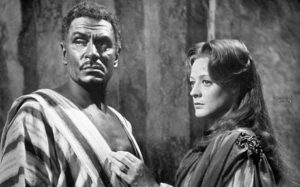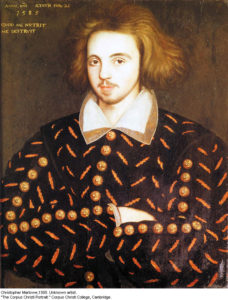I haven’t missed a Commonwealth Shakespeare performance on Boston common since the infamous Hamlet incident in 2005. Every year I wait to see what they’ll play, every year I tell friends and family and coworkers for weeks leading up that I’ll be going. It’s something of a holiday for me.
This year is Romeo and Juliet. Or, like I told everybody, “The one everybody knows!” I could not say that about Love’s Labours Lost or Two Gentlemen of Verona :). Better, I could at last take the kids. People might think that my kids have grown up with Shakespeare, and they have. But that doesn’t mean that at under ten years old they can sit through an actual 2-3 hour Shakespeare performance in the original text. They’ve seen movie versions, clips, kids versions, modern versions – but this would be the first time they would sit through a “real” show.
This was a very traditional interpretation, which made it even more perfect. Period scenery, with a balcony dominating the stage. Period costumes, with the Montagues in one color and the Capulets in another (and Mercutio in a third).
All in all I liked it, and I’m glad my kids – who also liked it – got to see this one. But I didn’t love it. My oldest, who just finished the play in high school, spent the play explaining things to her sister, and occasionally turning around to me when they chose a particularly interesting interpretation, or altered a more obvious line. My middle, who is fascinated primarily with story, wanted me to tell her the plots of basically all the Shakespeare stories. At one point she apparently realized that Shakespeare collaborated (when I called The Tempest his last solo effort) and she got all bent out of shape over that, declaring that she never knew Shakespeare was a fake, and that she’d have to seriously think about this. My youngest did his best to piece together everything he knew about the story, coupled with what he could skim in the program, with what he was seeing on the stage. Of course that led to moments like the early scene where Benvolio is explaining to Lord Montague where Romeo has been, and my son explains to me, “That’s Tybalt talking.” In this particular cast, both Benvolio and Tybalt were two African American gentlemen, and from our seats I’m sure they looked very similar to him.
Stuff I Liked
One particularly fascinating moment came during the “pre-show” of sorts. The troupe put on a stage combat demonstration. No explanation or narration, just an opportunity for the audience to get a sneak preview at the fight scenes. I watch two guys go at it and tell my kids, “That must be Romeo and Tybalt, because that’s not how Mercutio gets it.” My attention drifts, because in a few minutes I realize there’s about twenty people all battling and I think, “Oh, cool! The opening scene!” When suddenly this tall, athletically built woman, in a dress, leaps into the fray with sword drawn and parts two warring men. It was actually pretty cool, and looked like something out of a movie fight scene. I had no idea what was going on. My brain immediately flipped through the script trying to figure out what I’m watching. “Wait,” I say out loud, “Are they going gender blind for this? Cool.” I ask my oldest to look her up in the program, and without looking (because apparently she already had), all I hear her say is the word “princess” because now there’s some other noise, I think the director had come out to talk. I still don’t get it, and I think that this is the actress’ name.
Nope – that’s Princess Escalus. They have gone gender flipped for that particular role, and I’m totally ok with it because she was seriously badass. When this Princess said to knock it off, people took her seriously. (What I did not like is that they put her in a dress but still left her lines calling herself Prince. Can’t we just pick one? Either you’ve got a woman playing a man, or else you’ve flipped the gender of the character. It’s jarring to me when they play it from both angles.)
Love Mercutio. I tell my kids, “The trick with Mercutio is, the minute you see him, you have to like him. He’s the cool guy that everybody wants at the party. He’s the one where you’re invited to hang out and you’re all, Oh, Mercutio’s gonna be there? Dude, absolutely, let’s go!” And this Mercutio (who was giving off a strange Key and Peele vibe) crushed it there. During the Queen Mab speech all of the other masqueraders are hanging on his every word. But he can just as easily flip and talk one on one with his pal Romeo. I find myself looking sadly forward to watching him die because I already like him.
 Romeo and Juliet are … well, annoying. Overacting every word. And I’m totally ok with that. I am of the “Romeo and Juliet are two stupid kids who think the world is ending around them” school, and kids in that situation *are* annoying, even if it’s Shakespeare they’re reciting.
Romeo and Juliet are … well, annoying. Overacting every word. And I’m totally ok with that. I am of the “Romeo and Juliet are two stupid kids who think the world is ending around them” school, and kids in that situation *are* annoying, even if it’s Shakespeare they’re reciting.
The soundtrack. I don’t know how to explain it, it just worked. The party scene was hopping. The fight scenes were ominous. With my kids at this one I was especially aware of anything happening that would help make it obvious what is happening on stage, and when the music suddenly switches when Tybalt walks in, you know something’s about to go down.
There were also bits of interaction with the audience that were pretty cool, and kept my kids entertained. Several times the Friar actually motioned to the audience to complete his lines. Granted this had the effect of really killing the mood because he was enunciating the first part like Inigo Montoya playing rhyming games with Andre the Giant’s Fezzick the giant (“You have a great gift for ….rhyme…”) but hey, it was fun. I’m not holding this production up to any high standard.
There’s also a funny bit in the beginning where Romeo and Benvolio are arguing about Rosaline, and Romeo’s got his line, “Show me a mistress that is passing fair,” so Benvolio hops down into the audience, picks out a woman to stand and show off for comparison to Rosaline.
It was little stuff, but it worked. The party scene at the Capulets had the dancers all come through the audience to enter, but then back out into the audience to dance. There were even these little mini stages set up around the edges that they made their way toward, which I even commented at the time seemed like a lot of effort because they were there for just that scene, and delivered no lines (just regular dancer/partygoers). Strange amount of extra effort for that little effect.
 A word, too, for the overall visual presentation of this production. I thought it was absolutely beautiful. Totally traditional, but that’s fine, there’s a reason why it’s iconic. There’s a moment when Juliet’s up on the balcony in her nightclothes and the wind is blowing them just ever so slightly, I found it quite near perfect.
A word, too, for the overall visual presentation of this production. I thought it was absolutely beautiful. Totally traditional, but that’s fine, there’s a reason why it’s iconic. There’s a moment when Juliet’s up on the balcony in her nightclothes and the wind is blowing them just ever so slightly, I found it quite near perfect.
Stuff Not So Much
The pacing of many scenes was off. Fred Sullivan, the most senior actor of the group, plays Lord Capulet as I expected. I go into every show wondering what role Fred will play, because I know he brings everything he’s got. Saw him as Nick Bottom years ago and never forgot him. But it felt like all of his scenes this year were this sort of zero to sixty ride where one moment he’s laughing and jovial and the next HE’S RANTING AND SCREAMING AT THE TOP OF HIS LUNGS LIKE HE’S GOING TO HAVE A STROKE and then he’s back to being his jolly old self. This was true at the Capulet ball where he had to yell at Tybalt, but it was really obvious when Juliet tells him she doesn’t want to marry Paris. He’s talking to her so softly and quietly that you barely realize he is…taking off his belt. The next thing you know he’s chasing her around the scene trying to whip her with it, screaming the whole time. It got so bad that when he finally delivers the “My fingers itch” line, with his hand poised above his head to strike, I’m thinking, “Dude, the belt was way scarier.” Later when she apologizes and he goes back to being the loving father. He basically seems bipolar. Which I think is an oversimplification of his personality (seems to be a theme here).
Same with the opening scene. I like the opening scene to build and be mostly comedy, so the audience can get into it and feel the transition between the humor and the violence at any time. Not here, here it is all loud screamy violence all the time. We all know the Baz Luhrmann version, right? The scene in the gas station with all the screaming? I liked that one better. Here it just felt like the actors couldn’t bring any more depth to their roles than, “These guys just want to fight because they hate each other so much.”
Worse, though, was Mercutio’s death. Above I said I sadly looked forward to it, because I liked the character, and I think that the whole mark of a tragedy is you can know what’s going to happen and still be sad about it because you feel something for the characters. Here I didn’t get that. First, it was over way too fast. They fight, Romeo dives in, Mercutio is struck and then immediatelydelivershisnextthreelinessofastIwasn’tsurewhatwashappening.
I like a good dying Mercutio. I want him struggling for breath, on the ground, uttering his dying words like a curse. This Mercutio was running around the stage during the whole thing. It wasn’t even obvious that there was any blood on him until the end of the scene, and if you didn’t know what was going on you might have missed it. He even walks out practically under his own power.
I did like (and I realize this should go in the section above but they go together) Romeo’s reaction. I’ve always thought that his line about “Mercutio’s soul is little ways above our heads, and you, or I, or both must go with him” is underrated. I like a Romeo that’s a combination of fire-eye’d furious and yet also terrified because he thinks there’s an equal chance that he’s going to die, too. I got that. That was cool.
Bonus? The rest of the scene plays out, and at some point, as the lights go down, Tybalt’s body is borne off. But not before Benvolio taps one of the Capulets on the shoulder and takes his spot, helping to carry him. Loved the idea of that. Easily went past many people – it was dark, they were getting focused on their intermission bathroom break, no words are even spoken. But it shows that Benvolio, who just replayed the scene as “Romeo didn’t do anything wrong, he came here trying to make peace,” maybe realizes, unlike the parents, that this is an opportunity to bring the families closer, not farther apart.
Conclusion
I liked it, but I didn’t love it. I ended up describing it to a co-worker this way: “It’s way better than any school or community performance you’ll see, but at the same time, it didn’t feel like the professional standard you might expect. I’m glad it was a free show. If I’d paid fifty bucks to go see it, I think I would have come away disappointed. There were things I liked, a lot, but there were many things that I felt could have been done so much better.”
It disappoints me to say that, but I’m just being honest. I’ve seen more than a dozen of their shows, and I’m not going to say each one of them moved me to tears. They’re quite capable of it. I’ll never forget the image of Kent in the storm, calling out for King Lear. I loved the play so much I wrote two posts about it- part one, part two.
Of course, everything I’ve said above – the traditional interpretation, the oversimplification of the characters, the over acting – all made it the perfect show to take my kids. So there’s that! I just hope that next year when it comes around again, whatever show they may choose – because I’m going! – that I bring it up to the kids and see whether they want to come with us again.
 I’m not a big fan of “favorites” when it comes to Shakespeare – I like to play the “that’s like picking a favorite child” card. But part of the reason for that is because every play has got some good and some bad, something to recommend and something to avoid, none of them are perfect.
I’m not a big fan of “favorites” when it comes to Shakespeare – I like to play the “that’s like picking a favorite child” card. But part of the reason for that is because every play has got some good and some bad, something to recommend and something to avoid, none of them are perfect.


 Romeo and Juliet are … well, annoying. Overacting every word. And I’m totally ok with that. I am of the “Romeo and Juliet are two stupid kids who think the world is ending around them” school, and kids in that situation *are* annoying, even if it’s Shakespeare they’re reciting.
Romeo and Juliet are … well, annoying. Overacting every word. And I’m totally ok with that. I am of the “Romeo and Juliet are two stupid kids who think the world is ending around them” school, and kids in that situation *are* annoying, even if it’s Shakespeare they’re reciting. A word, too, for the overall visual presentation of this production. I thought it was absolutely beautiful. Totally traditional, but that’s fine, there’s a reason why it’s iconic. There’s a moment when Juliet’s up on the balcony in her nightclothes and the wind is blowing them just ever so slightly, I found it quite near perfect.
A word, too, for the overall visual presentation of this production. I thought it was absolutely beautiful. Totally traditional, but that’s fine, there’s a reason why it’s iconic. There’s a moment when Juliet’s up on the balcony in her nightclothes and the wind is blowing them just ever so slightly, I found it quite near perfect.